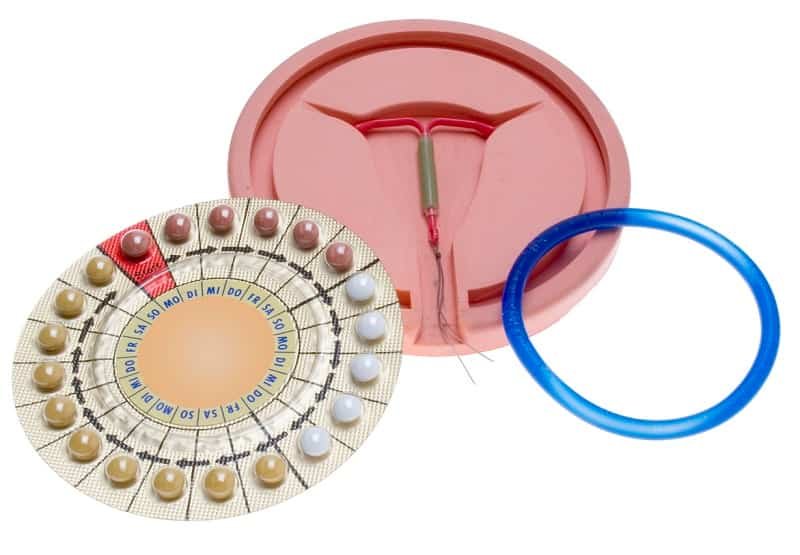Does Birth Control Make You Gain Weight?
Does Birth Control Make You Gain Weight? Insights from a Nutritionist’s Perspective
As a nutritionist and a mom who’s experienced the ups and downs of weight management, I understand how hormonal changes, especially those from birth control, can lead to questions about weight gain. Many women wonder if birth control will make them gain weight, and it’s a legitimate concern. Let’s dive into how birth control can impact your body, bust some myths, and offer a few practical tips for managing weight, regardless of the type of contraception you use.

Understanding Birth Control and Weight Gain: Fact or Fiction?
First, let’s clarify a key point: not everyone gains weight on birth control, and some people may actually experience no change at all. However, studies indicate that some women may experience slight weight fluctuations due to the hormonal effects of birth control. These fluctuations are more common with certain types of contraceptives, particularly hormonal ones like birth control pills, birth control shots, and implants.
Key Insight: The relationship between birth control and weight gain is complex. Research suggests that while some forms of hormonal birth control may lead to a slight increase in body weight, these changes are often minor and temporary. Most importantly, weight changes are usually due to water retention and changes in appetite rather than fat gain.
Types of Birth Control That May Impact Weight
When it comes to weight concerns, understanding how different types of birth control affect the body can be helpful. Here are some common types:
- Birth Control Pills: Most birth control pills today are low-dose and generally do not cause weight gain. If you experience any weight changes, it’s often due to water retention rather than fat increase. Some women may notice a slight increase in appetite, but this isn’t always the case.
- Birth Control Shots: The Depo-Provera shot has been associated with weight gain in some women. This method involves an injection every three months, releasing higher levels of progestin, which can stimulate appetite and increase water retention.
- Implants and IUDs: Hormonal IUDs and implants can also influence weight, although it’s generally minimal. These methods release a lower amount of hormones, meaning any changes are often less noticeable.
- Non-Hormonal Options: Barrier methods like condoms, copper IUDs, or diaphragms do not contain hormones and, therefore, do not affect weight.
Quick Tip: If you’re concerned about weight gain, discuss non-hormonal birth control methods with your doctor, as they don’t impact weight or appetite.


Practical Tips to Manage Weight While on Birth Control
Whether you’re just starting on birth control or have been using it for years, there are some effective ways to manage your weight that don’t require drastic changes.
- Stay Hydrated: Many women report bloating and water retention, especially in the first few months of starting a new form of birth control. Staying well-hydrated helps your body manage fluid balance, reducing bloating and making you feel more comfortable.Practical Example: Aim to drink at least 8 cups of water a day. Adding lemon or cucumber can make it more enjoyable and may reduce bloating naturally.
- Choose Nutrient-Dense Foods: Birth control may impact your appetite, so it’s essential to fill up on nutrient-dense foods. High-fiber fruits and vegetables, lean proteins, and whole grains help keep you full longer, making it easier to avoid unnecessary snacking.Example: Try incorporating a handful of nuts, an apple, or some Greek yogurt as snacks. They’re packed with protein and fiber, which helps manage hunger without adding empty calories.
- Exercise Regularly: Exercise not only helps manage weight but also improves mood and energy levels, which can sometimes be impacted by birth control. Both cardio and strength training are effective for maintaining a healthy weight, as they help balance hormones and regulate appetite.Quick Workout Tip: A 30-minute walk each day can work wonders. If you’re short on time, a brisk 10-minute walk after each meal adds up, helping with digestion and reducing bloating.
- Monitor Your Body’s Signals: Sometimes, birth control can increase your appetite or change your cravings. Listening to your body’s hunger cues is crucial, as it helps you distinguish between genuine hunger and eating out of habit or emotion.Practical Tip: Try the “pause and reflect” method before each meal. Take a moment to assess whether you’re genuinely hungry or just eating because it’s time or because you’re stressed. This small habit can help you eat more mindfully and reduce overeating.
How to Determine if Birth Control Is Affecting Your Weight
If you’re worried that birth control may be impacting your weight, tracking your body’s changes over time can provide insight. Keep a log of any weight changes, bloating, or appetite shifts you notice. Tracking can help you and your doctor see if there’s a trend related to your birth control.
Actionable Step: Write down how you feel after meals, how your clothes fit, and any changes in mood or appetite. Small changes are normal, but significant shifts may indicate that your body is adjusting to a new hormonal balance.
Managing Emotional Changes with Birth Control
It’s also worth noting that birth control can affect mood for some women. If you’re experiencing mood swings or stress, this can lead to emotional eating, which is often linked to weight gain. Finding healthy ways to manage stress can be beneficial not only for weight management but also for your overall well-being.
Practical Advice: Incorporate stress-relieving activities into your day, such as journaling, stretching, or practicing mindfulness for a few minutes. Apps like Calm or Headspace offer quick, guided meditations that can help center your mind and reduce the likelihood of turning to food for comfort.


Balancing Hormones and Weight
While birth control may contribute to slight weight fluctuations, it’s often due to water retention and appetite changes rather than actual fat gain. Staying mindful of what you eat, staying hydrated, and incorporating regular exercise can help manage any changes you may experience.
Remember, each person responds differently to birth control, and what works for one person may not work for another. The good news is that with a balanced lifestyle, you can manage weight effectively, regardless of the type of birth control you choose.
Important Note
If you have any concerns about birth control and weight gain, it’s always best to consult your doctor. They can help determine if your current method is right for you or if an alternative might better support your weight management goals.
Recommendation: Crave Burner
When it comes to managing cravings and maintaining a healthy weight, some people may find supplements helpful. Crave Burner is a dietary supplement designed to support appetite control and weight management through a unique blend of ingredients. This product aids in reducing appetite, supporting fat metabolism, and promoting feelings of fullness, making it easier to stick to a balanced diet. Its formula also offers digestive comfort and helps regulate blood glucose levels, which can be especially helpful for individuals who find themselves reaching for snacks throughout the day.
Crave Burner combines seven natural ingredients that work together to support weight management, ideal for anyone who struggles with controlling calorie intake. Remember, though, supplements work best when paired with a balanced diet and regular exercise. And as always, consult with your doctor before trying any new supplement to ensure it’s a good fit for you
